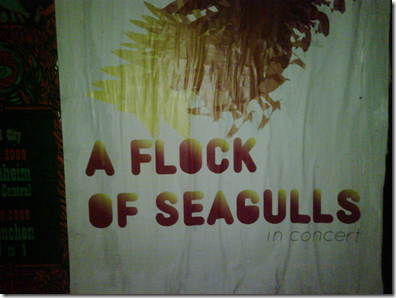
Mark Zuckerberg says the world is much more divided than he ever expected https://t.co/EPPQLiMtYp #division pic.twitter.com/rxZ0iwbDu3
— World Economic Forum (@wef) April 7, 2018
elicited this magnificent response.
Study STEM, they said. It’s not like a degree in Political Science and International Relations will ever be useful for anything… https://t.co/Z3CxQGHWAw
— Eva (@evacide) April 8, 2018
Hedley Bull was a famous international political scientist, he wrote several books. They weren’t easy reading is putting it mildly. I only read Anarchical Society. At the time I read it, in 1990, everyone was talking about Francis Fukuyama’s End of History, which, at the risk of over-simplifying it, predicted that liberal western democracy was the end game of politics, and the totalitarians and the communists were history. Bull’s view of international politics saw things rather more messily.
Cloud computing architectures today have optimized for and thrived under a Pax Americana construct. The model being, American cloud providers are the benevolent but hegemonial super power, and they run the world’s data for the rest of us, in a suzerain system. Sort of like the British East India Company and the empire did with trade in the 19th Century. It is good for us all they tell us, but Amazon, Facebook and others are very much America First. There has been a relentless centralisation of processing, driven largely economies of scale, technical efficiencies and a lack of regulatory constraint. Where processing takes place in the data colonies, it is has been usually for latency factors, rather than compliance, but there are of course exceptions.
This model is under threat, from two very different political forces.
In Europe, the data colonised have, after years of inaction, passed a law with some teeth that challenges the US corporate position that data is a commodity that can be appropriated for beads and shells and consent forms that no-one understands. The GDPR will require the data colonisers to change their behaviour, while Facebook is most egregious example, it would be foolhardy to assume they are the only data pillagers. This law is likely to force the colonisers to be a bit more careful with the data from the colonies, and it will embolden other colonials to be a bit more demanding too. It is not quite the winds of change moment, but it is blowing in that direction.
International political stability in the analogue world is in its most fragile and unpredictable state, probably since the fall of the Berlin wall. Any remaining thoughts of America’s benevolent if clumsy peacekeeper role have vanished over the last year. American international politics is now capricious and erratic. Russia has become more belligerent. Just this week Russian did software equivalent of blocking the Suez Canal, they simply blocked several of the major US cloud providers. Many solutions running on AWS, for instance, were no longer accessible. Who needs a naval blockade when you can block the cloud port? The post WWII geo-political landscape is sadly filled with war by proxy, witness Vietnam, Angola, Nicaragua, Afghanistan and so on. Now we have IP proxy wars too. There is a long history of election manipulation, but it required brute force and sometimes backing coup d’ etat etc, today, that manipulation is through Facebook and Google etc. Zittrain’s powerful prediction of ‘digital gerrymandering’ has been vindicated by the Guardian’s revelations.
Software architecture decisions for the last 20 years have been made to optimise for application performance. Going forward things are going to get a lot more awkward. A while ago the Legal Scholar, Christopher Millard, wrote about the question of data sovereignty. Wise stuff.
Architectures of the future need to be designed to cope with an uncertain political and regulatory landscape. The next trade war will not just be about the price of steel, data will be constrained and choked too. Cloud vendors that want to operate effectively globally, are going to have challenge the assumptions that drove the centralisation of the last two decades. To borrow from Taleb, today’s architectures are not anti-fragile. We have moved a long way away from the initial decentralised premise of the internet. What started out as the epitome of anti-fragile, has become inherently fragile. The economic forces, aided by regulatory indifference and incompetence have led to a centralisation and proprietarisation (horrible word, I know) of computing power.
Some will argue that answer is blockchain. I suspect that it, or more likely, the next generation of distributed ledger technologies will be part of the solution, but it not the complete answer. Indeed it was a blockchain application, telegram, that drove the Russian data blockade decision.
The questions of international order and justice that occupied the minds of Hobbes, Mill, Marx, Hedley Bull and many others deserve closer revisiting in the digital world. I do wonder what Max Weber and JS Mill would have made of Facebook.







